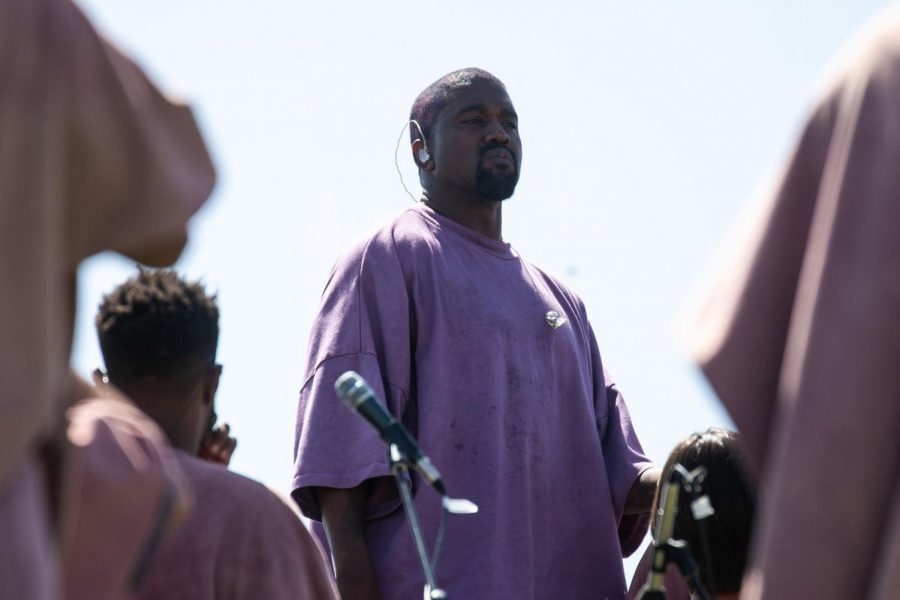Kanye’s “Jesus is King” is searching for meaning
Kanye West, pictured at Coachella in April, presented a playback of his new album and film Oct. 23 at the Forum. (Kent Nishimura/Los Angeles Times/TNS)
To say Kanye West is undergoing a tumultuous career moment is an understatement. While the rap artist has always been surrounded by controversy, his brand of controversy is perhaps undergoing a sort of metamorphosis; his alleged support of President Donald Trump and apparent shift from secular rap to clean gospel have both been quite the brewers of curiosity, both for fans and non-fans alike. The first album to come out of this phase in West’s career, “Jesus is King,” boasts and eclectic choir-fueled atmosphere and lyrics that accommodate the rapper’s new philosophies. This is not to say that “Jesus is King” is a perfect album; despite admirable intentions, the album has a number of conceptual shortcomings that ultimately serve to lessen the depth of the project.
It would not be possible for West’s ego to inflate as much as it has if he did not have a legitimate ear for musical composition. “Jesus is King” is filled with wonderfully expressive musical concepts from the first song to the last; the styles range from gospel to traditional hip-hop to smooth R&B, and Kanye is able to harness all of these styles to great effect. The songs do have varying degrees of inventiveness—some feel staler than others—but, for the most part, professional-level musicality is present in the album.
However, the major problems of this album have not to do with the music itself, but with the shortened length of the album as well as the way the lyrics juxtapose with the music.
In 2018, Kanye West was involved in multiple projects. He collaborated with rapper Pusha T for the joint project “Kids See Ghosts,” and he released his own album, “Ye.” Kanye West was also involved as a producer in many of the biggest releases of the year, including Pusha T’s “Daytona,” Nas’s “NASIR” and Christina Aguilera’s “Liberation.” “Kids See Ghosts” and “Ye” were both brief in terms of length, and that was likely forgiven by the music community due to Kanye’s high level of activity.
On the flip side, Kanye’s 2019 output has not been as spread out as it was in 2018. “Jesus is King” is Kanye’s only project where he is the main feature. Because of this, a 28-minute runtime for a highly anticipated music project is disappointing for fans and critics alike. The shortened length does not give the lyrics enough time to flesh out its themes of faith to a substantial degree. This leaves “Jesus is King” as a good conceptual foundation that does not have anything built on top of it.
Not all of the lyrics are an issue, per se. Kanye West is saying many of the right things; he is correctly applying Christian scripture and tenets, especially for the single “Selah.” However, there are many moments when the songs divulge into corniness, namely the times when Kanye West sings about Chick-fil-A on the track “Closed on Sunday.” To be frank, the sincerity of the pure gospel tracks like “Every Hour” and “Water” are lost when the album tries to provide overarching commentary on American evangelical Christianity.
“Jesus is King” may not be perfect, but it is perhaps the most fascinating album of the year. It marks the beginning of a notable transition period for its super-star music artist. If Kanye’s claims of conversion are true, then that could very well be an exciting thing; however, he should be earnest about his faith rather than pander to the evangelical audience. He does not have to try as hard to praise God, and he should try harder to provide listeners a more substantial product.








